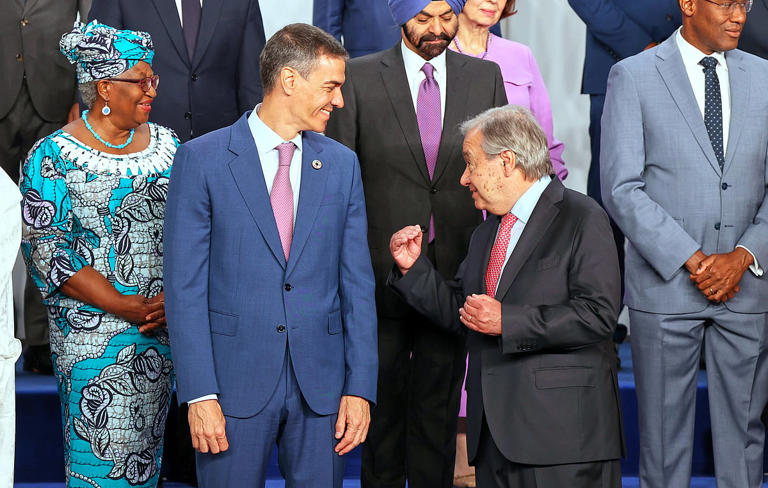US Skips Global UN Summit as World Leaders Launch $4 Trillion Development Plan to Fight Poverty
In a significant development that highlights a deepening divide on global development priorities, the United States has opted out of a major United Nations-led global summit aimed at addressing poverty and inequality by mobilizing trillions of dollars in development financing. Held in Seville, Spain, the four-day Financing for Development meeting gathered over 70 world leaders, international financial institutions, development banks, and civil society organizations to address the massive $4 trillion annual financing gap needed to achieve the United Nations’ Sustainable Development Goals (SDGs) by 2030. The event culminated in the unanimous adoption of the Seville Commitment, a strategic agreement designed to close the widening economic disparity between developed and developing nations.
Despite the high-level participation and consensus, the absence of the United States cast a notable shadow over the event. The U.S. officially withdrew from the process and rejected the negotiated outcome document just weeks before the summit. This move was met with disappointment from the international community, with U.N. Deputy Secretary-General Amina Mohammed calling the decision “unfortunate” and expressing hope that the U.S. would re-engage in future discussions to help lift millions out of poverty. U.S. objections were primarily centered around proposed reforms in global debt management, tax policies, and governance of international financial institutions. According to Jonathan Shrier, the acting U.S. Representative to the Economic and Social Council, these proposals crossed multiple “red lines” for the U.S., including provisions that would expand the role of the U.N. in global financial oversight.
Meanwhile, other global leaders reaffirmed their commitment to multilateral cooperation and sustainable development. European Commission President Ursula von der Leyen and French President Emmanuel Macron emphasized the importance of collective mobilization, stating that Europe remains steadfast in its support for international development efforts. Spain’s Prime Minister Pedro Sánchez stressed that the summit serves as a crucial platform to challenge the notion that competition and rivalry should define humanity’s future.
The Seville Commitment outlines a bold plan of action that includes setting a minimum tax revenue target of 15% of each country’s GDP, tripling the lending capacity of multilateral development banks, and incentivizing private sector investment in essential infrastructure, health, education, and clean water access. It also calls for urgent reforms to address the crippling debt crisis that many developing nations are facing. According to U.N. trade chief Rebeca Grynspan, last year alone, 3.3 billion people lived in countries that spent more on servicing their debt than on healthcare and education combined—a number expected to rise to 3.4 billion this year. Total debt servicing by developing nations is projected to hit $947 billion in 2025, up from $847 billion the previous year.
African leaders, such as Angolan President Joao Lourenco, have echoed these concerns, pointing out that debt payments in many African nations exceed expenditures on health and education, thus stalling development progress. The stark realities of declining international aid, rising global interest rates, and increasing trade barriers make it all the more urgent for the world to find sustainable financing solutions.
Despite America’s absence, the Seville summit has been hailed as a step forward in fostering global solidarity and prioritizing the well-being of vulnerable populations. Leaders hope that continued international engagement will bridge funding gaps and accelerate progress toward the global development goals that are currently lagging far behind schedule.
For video news, visit our YouTube channel THE OLIGO.

